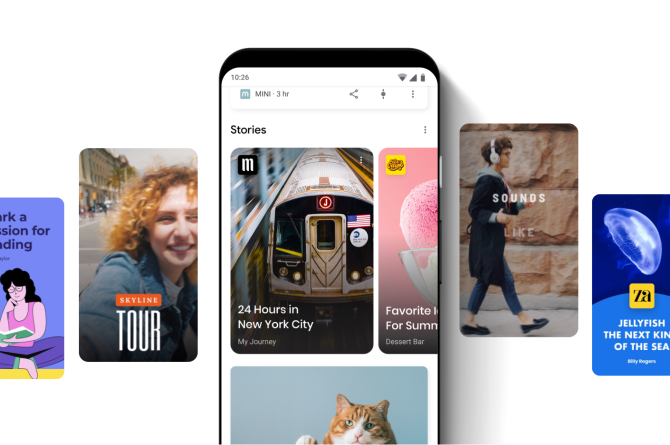Google and Facebook can still use the data users have shared with them
Both Google and Facebook know a lot about their users based solely on how those users interact with their websites.
For example, Google Search Ads can still use all the information taken from your interactions with Google. It’s the same with Facebook. If you’ve liked a Facebook page about snorkeling, an advertiser can reach you with a snorkeling-related ad on Facebook.
There are also other solutions in development, and ways you can leverage your own knowledge of your audiences.
Google’s Federated Learning of Cohorts (FLoC)
FLoC works in a similar way to current third-party cookie tracking, but without the same privacy concerns.
It gathers information about your browsing habits and then clusters you into a group with similar interests—a cohort. Information about those cohorts is then available for advertising purposes. So with that, you’d target cohorts, rather than individuals. As a user, you might not see an ad for a specific product you saw on another website. But you might see an ad for that general type of product.
Apple Webkit’s Private Click Measurement
Apple doesn’t provide a solution for targeting users, but it has proposed a way of measuring ad click attribution. This helps you know if a purchase on your website was the result of the user clicking on an ad.
Facebook’s Aggregate Event Measurement
Facebook’s solution for the iOS 14.5 development is Aggregate Event Management. It’s a new way of Facebook Pixel set-up and tracking, which is somewhat more limited than the current arrangement. Facebook says it’s “analogous to Apple’s Private Click Measurement, but is designed to solve for key advertiser use cases not addressed by Apple’s proposal”. Like we said, Facebook isn’t a fan of what Apple’s doing.
Using your own first-party data
First-party cookies are not affected by these changes. You could still, for example, use those cookies to display offers and information to specific users on your website. Those would be guided by the users’ interactions with your website, and any information they supply you directly (through forms, for example).
But this only works if users are already on your website. It’s not a way to draw them in.
For that, consider how you can use your email database, for example. Maybe it’s time to start up that email newsletter. Or you could use those email addresses to target advertising on Facebook. (Make sure you’ve got the right permission to use those emails for marketing purposes.)
What’s next for marketing in the absence of third-party cookies?
We can see there are plenty of options still available to marketers. However, just how well they’ll all work is a case of “wait and see.” We’ll know a lot more when iOS 14.5 is introduced, and when Chrome fully phases-out third-party cookies.






